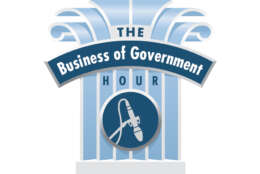SDFM The Business of Defense
-
Federal News Network surveyed five agencies about their approach to squeezing more out of their data to protect taxpayer money.
March 18, 2022 -
While the recovery from Hurricane Ida continues, Joe Valiente, Director of Emergency Management in Jefferson Parish, Louisiana said they are also focused on the future.
March 16, 2022 -
Are you a member of the large and fast-growing cohort of retirement-eligible federal employees? For many, a quest for a more meaningful life often starts with a move or relocation to pursue one or more difference lifestyles.
March 15, 2022 -
Artificial intelligence success stems from establishing a reliable ecosystem, having the right data and focusing on people. We talk with AI leaders at CMS, DLA, GAO and Noblis to learn why it makes sense to start small and then scale.
March 14, 2022 -
How has the mission of the U.S. Government Accountability Office evolved? How is GAO innovating the way it does its oversight mission? What does the future hold for the U.S. Government Accountability Office? Join host Michael Keegan as he explores these questions and more with Comptroller General Gene Dodaro, leader of the GAO.
March 14, 2022 -
This week Dr. Joia Mukherjee, the Chief Medical Officer of Partners in Health, shares memories with Conversations on Health Care hosts Mark Masselli and Margaret Flinter. She explains how the nonprofit’s focus will remain on community health in the countries it serves.
March 14, 2022 -
Every agency is going to have a different approach to threat hunting, based on their needs and organizational structure. But across every scale, proactivity is the key to doing it well.
March 11, 2022 -
This week on FEDtalk, celebrate 20 years of advancing African American leadership within the senior ranks of the federal government. Guests from the African American Federal Executive Association (AAFEA) join the podcast to discuss their 20th anniversary event and the AAFEA programs that promote career enhancing opportunities and the development of critical skills.
March 11, 2022 -
Innovative technologies that utilize existing cell technology to relay back environmental data are already in use. Some of them challenge the imagination.
March 10, 2022 -
To help agencies break through the inertia that can inhibit logistics and sustainment capabilities, LMI developed LogSmart. This family of solutions targets the needs of fleet operators, maintainers, supply chain analysts, program managers and more.
March 10, 2022 -
“When you look at the vast majority of our farmers, ranchers and processors out there, they’re really not using these technologies,” says the Agricultural Research Service’s Mike Buser. He explain how better data can help improve production yields.
March 08, 2022 -
What is the financial management strategy for the U.S. Patent and Trademark Office (USPTO)? How is it pursuing a Hybrid First workplace model? What is it innovating the way it operates and does business? Join host Michael Keegan as he explores these questions and more with Jay Hoffman, Chief Financial Officer at USPTO
March 07, 2022 -
The whole world is watching as Russian troops advance in Ukraine and brave medical professionals are on duty throughout the crisis. One of them is Dr. Kateryna Pochtar, who shares her chilling description of how she and her colleagues are trying to help patients in their clinic. Dr. Pochtar explains how patients are crying in her arms as her life consists of just work, hiding and sleep. She tells Conversations on Health Care hosts Mark Masselli and Margaret Flinter that some patients are afraid to seek medical care because they worry they’ll be trapped outside during an air alarm.
March 07, 2022 -
Federal employees who are required to file confidential financial disclosures have done so already, and now it’s time to face the infamous Form 278: public financial disclosures.
March 07, 2022 -
As government agencies look to modernize their technology platforms, respond to recent changes in where and how work gets accomplished, and prepare themselves for the future, it can be difficult to know where and how to start. That’s why public-private partnerships are so important.
March 04, 2022














